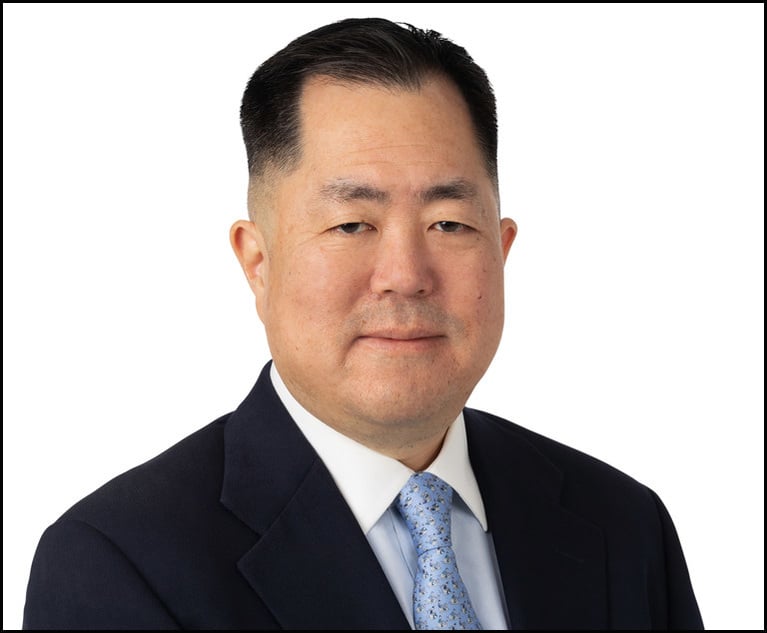What Plaintiffs Lawyers, Labor Advocates Expect from Newsom
Plaintiffs attorneys and labor interests are preparing a wish list of legislation to greet the incoming new California governor.
November 26, 2018 at 08:17 AM
6 minute read
 Sacramento State Capitol building on Capitol Way. Credit: Jason Doiy/ Recorder
Sacramento State Capitol building on Capitol Way. Credit: Jason Doiy/ Recorder
Updated Nov. 27
California's Legislature reconvenes on Jan. 7 and arriving with the 120 lawmakers at the Capitol will be a new governor, Democratic supermajorities in both houses and fresh hope for employment bills previously rejected by Gov. Jerry Brown.
Plaintiffs attorneys and labor interests, emboldened by November election victories and a flush budget surplus the state's legislative analyst called “extraordinary,” are preparing a wish list of legislation and funding priorities for the new session. On that list are restrictions on workplace arbitration, more money for courts, #MeToo-inspired bills and protections for the California Supreme Court's Dynamex decision.
“We're optimistic that we'll find at least a receptive person to have these conversations with,” said Wendy Musell, chair of the California Employment Lawyers Association's executive board.
At first blush, Gov.-elect Gavin Newsom would seem to be an ideal partner for labor and employee-side attorneys. The progressive Democrat spent seven years as mayor of San Francisco, walking picket lines and signing into law universal health care legislation.
But defining Newsom is not that simple, said Benjamin Ebbink, a former legislative consultant who's now of counsel at Fisher Phillips's Sacramento office.
“The fact that he comes from a business background and has particular ties to San Francisco and Silicon Valley, I think gives employers in certain industries hope,” Ebbink said.
Newsom and fellow investors launched the PlumpJack brand of restaurants and winery operations in the 1990s. The governor-elect frequently tells the story of trying to open his first business, a San Francisco wine shop, only to be stymied by a raft of “bureaucratic” requirements, including the installation of a mop sink on the second floor.
“When you fight bureaucracy, make sure you have money and patience,” Newsom told the Sacramento Bee last year.
His 2013 book Citizenville championed tech and digital disruption. Salesforce founder Marc Benioff is the godfather of one of his children. He calls Mark Zuckerberg and Elon Musk friends.
“He has sort of cozied up to the tech industry in Silicon Valley and the gig economy, and he likes to portray himself as being pro-innovation,” Ebbink said. “I think some of these players have hoped 'he's going to get it.'”
Here are some issues likely to hit Newsom's desk in his first year.
New push to limit arbitration.
Throughout his second stint as governor, Brown established himself as a skeptic of limits on private arbitration. One of his final vetoes killed legislation—framed as a way to protect women from sexual harassment—that would have banned companies from requiring arbitration agreements as a condition of employment. Brown said the bill, similar to another he vetoed in 2015, violated federal law.
The bill's author, Assemblywoman Lorena Gonzalez Fletcher, D-San Diego, has already said she will resurrect it in the new session. And she could have a powerful ally on her side. Flanked by actress Jane Fonda, Newsom's wife, filmmaker Jennifer Siebel Newsom, lobbied for the bill's passage this summer.
Big tech companies such as Facebook, Google and Uber, too, recently announced they're ending forced arbitration of employees' sexual harassment claims, perhaps giving Newsom less incentive to block Gonzalez Fletcher's bill again.
“I think everything big and controversial that didn't get done under Brown is likely to come right back to the governor's desk,” Ebbink said. “I think labor and others are going to put him right to the test.”
Plaintiffs attorneys also want legislation mandating more public reporting of private arbitration companies' activities, including the identities of employers steering cases to those firms and how those cases are resolved.
Existing law already requires arbitration firms to report some dispute-related information, but a 2017 report by the Public Research Law Institute at UC Hastings College of the Law found that only 11 of 32 California organizations that appeared to offer arbitration services were fully complying with the reporting law.
“There appears to be a significant problem in that area,” Musell said. “This is data that anyone would want to know.”
More #MeToo-inspired legislation.
In addition to Gonzalez Fletcher's arbitration bill, expect to see workplace legislation generated by this year's intense focus on workplace harassment to surface again. Among the bills Brown vetoed was AB 1870, which would have extended the time to file a workplace harassment complaint with the state Department of Fair Employment and Housing from one year to three years.
“It simply doesn't make sense when you have something that affects workers so deeply for the worker to have only one year to file a claim,” Musell said.
Legislation requiring companies to retain sexual harassment complaint records for five years and prohibiting retaliation against employees who file those complaints will likely be back, too.
The “Dynamex” ruling and a dilemma over worker classification.
Gig companies and the California Chamber of Commerce pressed lawmakers at the end of the last session to quickly enact legislation easing the worker classification restrictions imposed by the state Supreme Court's Dynamex decision. Legislative leaders, facing opposition from labor allies and the looming November election, declined. That fight will return in January.
“It's the number one employment issue out there,” Ebbink said. “The decision did sort of drop like a bomb in the employer community.”
The tech industry and labor advocates are already pressuring Newsom and drawing lines in the sand, Ebbink said.
“It's going to be a little chaotic,” he said. “You're going to have multiple industries trying to do their own thing and striking their own deals potentially with labor or with legislative members. You're going to have a whole host of potential bills out there dealing in some way with Dynamex.”
Court funding.
Brown was notoriously stingy with budget money for the judicial branch, often pressing for efficiencies and attaching restrictions to additional funding. He also blocked efforts to substantially increase judgeships around the state. Plaintiffs lawyers, stuck waiting for months or years for trial dates in some courts, will seek more from Newsom, the son of retired First District Court of Appeal Justice William Newsom.
“We want the courthouses to be open,” said Joe Cotchett of Cotchett Pitre & McCarthy. “That's been a big thing under Jerry [Brown]. If you can't get into a courtroom you can't get to trial.”
Update: This article has been updated to correct the misspelling of Wendy Musell's name.
This content has been archived. It is available through our partners, LexisNexis® and Bloomberg Law.
To view this content, please continue to their sites.
Not a Lexis Subscriber?
Subscribe Now
Not a Bloomberg Law Subscriber?
Subscribe Now
NOT FOR REPRINT
© 2025 ALM Global, LLC, All Rights Reserved. Request academic re-use from www.copyright.com. All other uses, submit a request to [email protected]. For more information visit Asset & Logo Licensing.
You Might Like
View All
Davis Wright Tremaine Turns to Gen AI to Teach Its Associates Legal Writing
4 minute read
Husch Blackwell Hires Former Adobe Counsel to Oversee AI Advisory Offering
3 minute read
Legal Tech's Predictions for Artificial Intelligence in 2025
Trending Stories
Who Got The Work
J. Brugh Lower of Gibbons has entered an appearance for industrial equipment supplier Devco Corporation in a pending trademark infringement lawsuit. The suit, accusing the defendant of selling knock-off Graco products, was filed Dec. 18 in New Jersey District Court by Rivkin Radler on behalf of Graco Inc. and Graco Minnesota. The case, assigned to U.S. District Judge Zahid N. Quraishi, is 3:24-cv-11294, Graco Inc. et al v. Devco Corporation.
Who Got The Work
Rebecca Maller-Stein and Kent A. Yalowitz of Arnold & Porter Kaye Scholer have entered their appearances for Hanaco Venture Capital and its executives, Lior Prosor and David Frankel, in a pending securities lawsuit. The action, filed on Dec. 24 in New York Southern District Court by Zell, Aron & Co. on behalf of Goldeneye Advisors, accuses the defendants of negligently and fraudulently managing the plaintiff's $1 million investment. The case, assigned to U.S. District Judge Vernon S. Broderick, is 1:24-cv-09918, Goldeneye Advisors, LLC v. Hanaco Venture Capital, Ltd. et al.
Who Got The Work
Attorneys from A&O Shearman has stepped in as defense counsel for Toronto-Dominion Bank and other defendants in a pending securities class action. The suit, filed Dec. 11 in New York Southern District Court by Bleichmar Fonti & Auld, accuses the defendants of concealing the bank's 'pervasive' deficiencies in regards to its compliance with the Bank Secrecy Act and the quality of its anti-money laundering controls. The case, assigned to U.S. District Judge Arun Subramanian, is 1:24-cv-09445, Gonzalez v. The Toronto-Dominion Bank et al.
Who Got The Work
Crown Castle International, a Pennsylvania company providing shared communications infrastructure, has turned to Luke D. Wolf of Gordon Rees Scully Mansukhani to fend off a pending breach-of-contract lawsuit. The court action, filed Nov. 25 in Michigan Eastern District Court by Hooper Hathaway PC on behalf of The Town Residences LLC, accuses Crown Castle of failing to transfer approximately $30,000 in utility payments from T-Mobile in breach of a roof-top lease and assignment agreement. The case, assigned to U.S. District Judge Susan K. Declercq, is 2:24-cv-13131, The Town Residences LLC v. T-Mobile US, Inc. et al.
Who Got The Work
Wilfred P. Coronato and Daniel M. Schwartz of McCarter & English have stepped in as defense counsel to Electrolux Home Products Inc. in a pending product liability lawsuit. The court action, filed Nov. 26 in New York Eastern District Court by Poulos Lopiccolo PC and Nagel Rice LLP on behalf of David Stern, alleges that the defendant's refrigerators’ drawers and shelving repeatedly break and fall apart within months after purchase. The case, assigned to U.S. District Judge Joan M. Azrack, is 2:24-cv-08204, Stern v. Electrolux Home Products, Inc.
Featured Firms
Law Offices of Gary Martin Hays & Associates, P.C.
(470) 294-1674
Law Offices of Mark E. Salomone
(857) 444-6468
Smith & Hassler
(713) 739-1250






